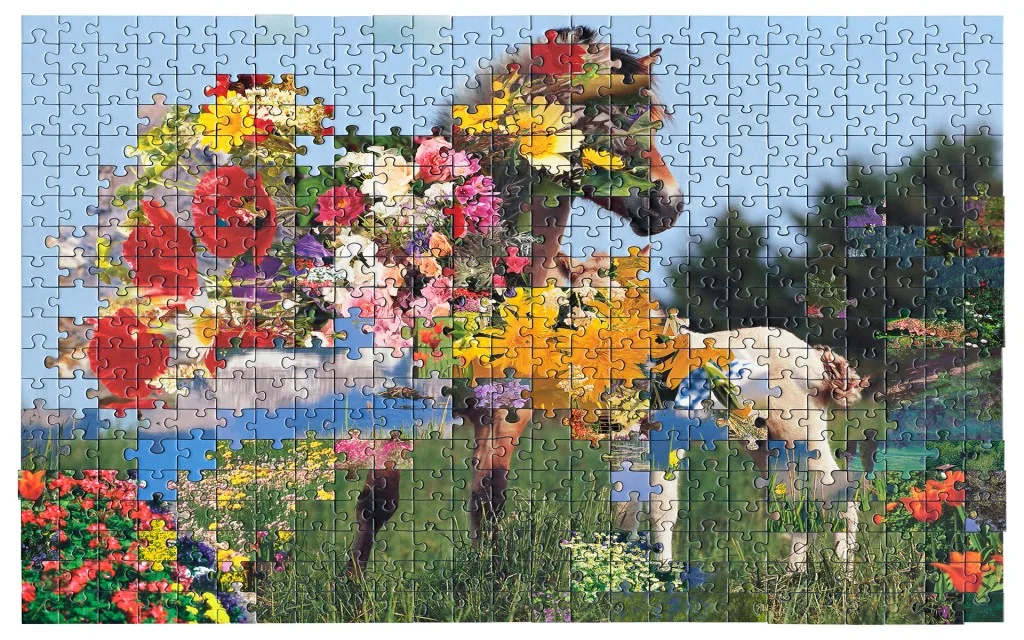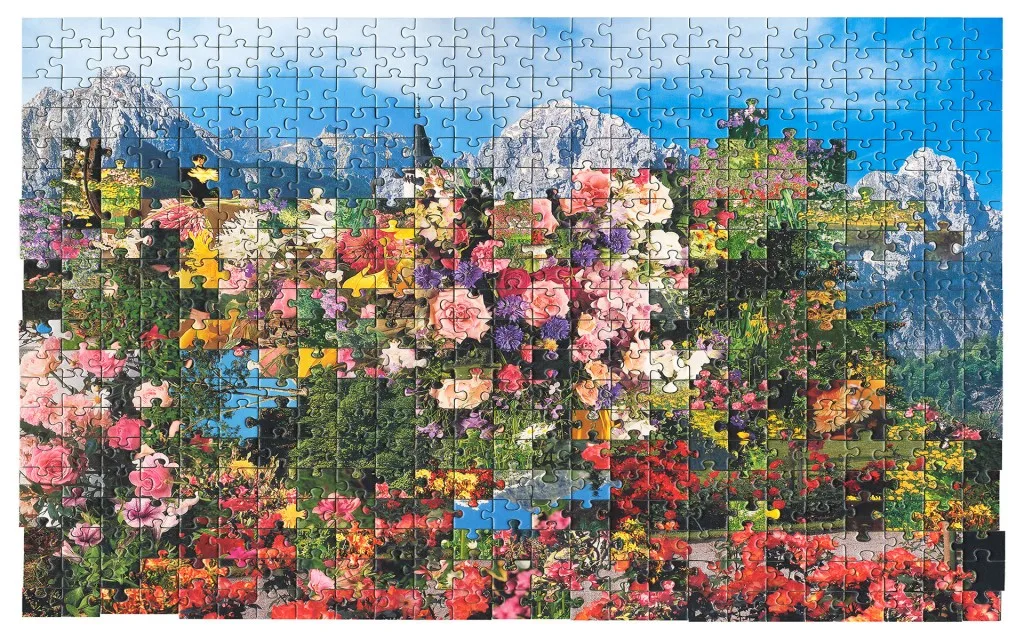

Plenty of us have spent a quiet evening or a rainy afternoon poring over a jigsaw puzzle, battling that mix of elation and frustration trying to figure out which pieces go where. But after seeing Kent Rogowski’s series Love = Love, you will never look at the humble jigsaw puzzle in quite the same way.

The New York-based artist realised that jigsaw manufacturers often cut their different puzzles using the same templates. So if you buy up lots of jigsaws produced by the same company, you can put together the pieces from different images into interesting new creations. Kent collected 60 such jigsaws and set about turning them into eye-catching and thought-provoking new artworks.
He says: “Using only the flowers and skies from each of the puzzles, I created a series of entirely new compositions by recombining the puzzle pieces. These spectacular, fantastical and surreal landscapes sit in direct contrast to the banal and bucolic images of the original puzzles.”

Although the series was made a few years ago, it has recently received a whole new wave of attention thanks to Erik Kessels’ book Failed It! The Dutch advertising legend is keen to promote a creative culture where failure is seen as a much-needed part of the process, and he in turn sees Love=Love as an inspirational example of following your own creative instincts.
“Scatter the pieces,” he writes in the book. “Throw away the instructions and put the pieces back together in whatever way you damn well please, all the while remembering that things that aren’t meant to go together can still work together.
Throw away the instructions and put the pieces back together in whatever way you damn well please.
“And like Rogowski, you might end up with a creation that is technically wrong, but aesthetically just right.”
It’s not the first time that Kent has experimented with mass-produced objects to make a point about our relationships with generic goods. In Bears, he took teddies, turned them inside out and re-stuffed them, while Everything I Wish I Could Be explored the publishing phenomenon of self-help books.
By making quite serious points about culture and society in such witty and visually appealing ways, his art feels both engaging and exciting.



